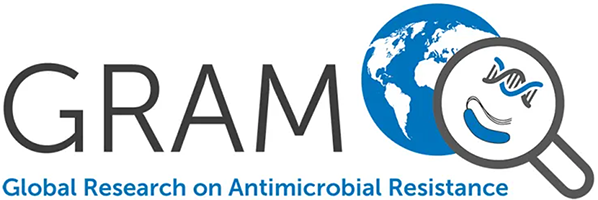The Global Research on Antimicrobial Resistance (GRAM) Project welcomed its new Principal Investigator Prof Ben Cooper this month, following the departure of Dr Benn Sartorius for a role at the University of Queensland.
Prof Ben Cooper, a highly experienced epidemiologist and infectious disease modeller with an extensive background in antimicrobial resistance and the burden of disease, will continue to lead his existing Oxford team of investigators, the Drug-Resistant Infections and Disease Dynamics group (DRIaDD), as he takes up his new duties, alongside GRAM Co-PI Prof Christiane Dolecek, a senior clinical scientist and one of the founding members of the GRAM project.
‘I’m delighted to be joining GRAM’, Prof Cooper said. ‘It’s an exciting opportunity to be joining such an amazing team working on this ambitious and vitally important project’.
Co-PI Prof Christiane Dolecek welcomed Prof Cooper to the team, and said Ben’s background in infectious disease modelling and examining interventions for antimicrobial resistance will be a huge asset to the project’s second phase.
‘We are very grateful to have Ben in this leadership role’, Prof Dolecek said. ‘Prof Cooper has been a GRAM collaborator and valued expert adviser from the start of the project. He brings an incredible array of skills and knowledge that will help us achieve our milestones, and address the rising threat of drug resistant infections worldwide’.
Among other research aims, the GRAM team will seek to model AMR burden over time, and develop a better understanding of drug resistance in specific bacterial pathogens. GRAM’s first phase concluded last summer, and a second grant will fund research activities in a phase known as ‘GRAM-2’ through March 2025.
In addition to welcoming Prof Cooper, GRAM team members also thanked Dr Sartorius, a highly experienced epidemiologist and spatial modeler, who joined GRAM more than two years ago and will continue to be involved in the project. Benn begins his new role at the University of Queensland in Brisbane, Australia, later this month.
GRAM is a partnership between the University of Oxford and the Institute for Health Metrics and Evaluation (IHME), University of Washington, to estimate the global burden of AMR. The GRAM team in Oxford are based in the Centre for Tropical Medicine and Global Health (CTMGH), within a research group known as Antimicrobial Consumption and Resistance Burden Estimation (MICROBE).
Global health leaders came together to establish the GRAM Project in 2017, seeking to increase the quantitative evidence base on drug-resistant infections, following concerns about a worldwide rise in AMR. A chief aim of the project is to include AMR in IHME’s ongoing Global Burden of Disease (GBD) study, so that researchers, policy makers and health practitioners can compare the impact of AMR with other types of health loss in recent decades.
In 2022, GRAM published preliminary findings in the Lancet which identified AMR for the first time as a leading global cause of death, with at least 1.27 million annual deaths directly attributable. Read the study, ‘Global burden of bacterial antimicrobial resistance in 2019: a systematic analysis’, in the Lancet.
The GRAM Project also examines antibiotic consumption and use worldwide. Read the study, ‘Global antibiotic consumption and usage in humans, 2000-2018: a spatial modelling study.
For more information about GRAM please visit the team’s web pages.


 ©
NIAID
©
NIAID